#napoleon a biography
Explore tagged Tumblr posts
Text
*Book Report!*
Napoleon, A Biography by Frank McLynn

I would just like to start off by saying that I do not recommend this book, unless you've already exhausted the 300+ other books in the world about Napoleon, then sure, why not.
It took me about 6 months to read, which is actually quick for me for a book of its size (668 pages) with life and everything going on but sometimes I just had to press on, or I really would have to be coming back as a ghost to read the other books! I'm just glad it's over 😮💨
My biggest problems were the reoccurring words and themes that repeated themselves so tirelessly. I dare someone to count the times the words "Machiavelli/Machiavellian" and "oriental complex" were used. "Fabian" and "Jungian" had their moments too. Then there were all the psychoanalytical Freudian reasons behind every little thing Napoleon did. It was because he felt this way about his mother or this way about his eldest brother. His views on women and his hidden homosexuality... These were the reason for everything apparently. In fact, you could make a drinking game out of these if you have a death wish.
The book definitely had its redeeming moments when it was actually focused on a particular battle or event. Unfortunately everything in-between was just filler speculation or spouting facts.
The end of this book was the great debate of poisoning, stomach cancer, or other reasons for Napoleon's demise. You have to forgive it for being published in 1997. The author seemed to go with Montholon being the poisoner but gave decent argument for all sides, even a myriad of different diseases it could have been. He said that "officially" stomach cancer is the cause of death since that was not a malady that the British could be accused of killing him with. It obviously ran in his family as well. They couldn't go with hepatitis or another apparently "more plausible" illness without being at fault by providing negligent medical care or effects of the climate from keeping him prisoner on St. Helena.
Read at your own risk, as these are just my opinions but let me say I've never been so glad to be done with a book!
24 notes
·
View notes
Text
Art dump! Sorry for the hiatus, but I’ve been pretty busy lately 😭. This is all random stuff from November/December btw.
Also, here's Saint-Just! I might make more frev art, but I want to read more about it, so probably in the distant future lol.




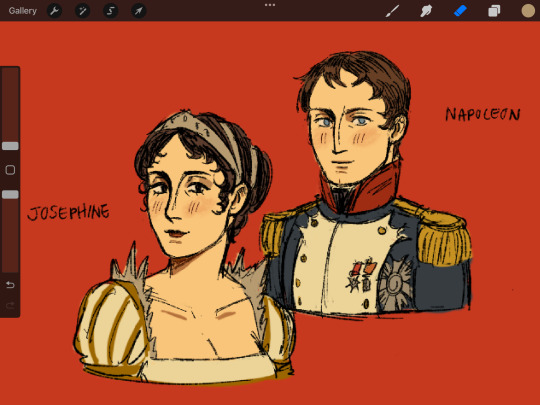
Also, happy new years everyone!! 🎉🎉
#napoleonic era#napoleonic wars#art#my art#joachim murat#jean lannes#jean baptiste bessières#jean baptiste bernadotte#napoleon bonaparte#louis antoine de saint just#frev#josephine de beauharnais#more lannes art but i've been reading his biography recently so it felt obligatory haha
278 notes
·
View notes
Text

there are other ways this sentence could have been written but this is by far the funniest version
#thank you bell#napoleon: a concise biography by david a. bell#napoleonposting#napoleon bonaparte#louis xviii#certifiedhistoryaddict
460 notes
·
View notes
Text
Mortier and Lefebvre!
I think the letters between Lefebvre and Mortier are fun to read because they’re both always so sweet to each other☺️ Here, Lefebvre has been absent for some time from the army due to a wound at Ostrach. Mortier had written a letter to Lefebvre about how it was going in his Brigadier General gig, and Lefebvre responds:
"Your news has given me infinite pleasure, my dear Mortier, please continue it for me; you feel how much they must interest me, especially in the position I find myself in. My arm, which at first was doing very well, is today in the most alarming state due to the ineptitude of a health officer who, however, in Paris, enjoyed a certain reputation..... I unfortunately gave him leave a little late and accepted Director Barras' doctor..... “
“Keep me informed of your operations; stay at the forefront if possible; Besides, I will always try to have you with me when I return to the army which, unfortunately, I do not foresee soon.”
(pp. 77-78)
Also, the author does mention Mortier’s sadness whenever a general he had been under leaves the army. Here, he writes to a General Ernouf (and also mentions Lefebvre):
"I learned with great regret of your departure from the army. Must we therefore give up the hope of seeing you there again with General Jourdan, your brave friend? You can, at least, count on the fact that our attachment and our esteem will follow you everywhere and that, in particular, the regrets that I feel about our separation are as sincere as the friendship that I have forever dedicated to you and to the others..... “
“If you see General Lefebvre, please tell him how much we want to see him again; I'm worried to know how he's doing; I have written to him several times and I have not received any news.”
(p. 81)
That was written in May 6 a few months after Lefebvre had written the previous above letter on April 23.
Also, later, Mortier wanted to return to the Rhine to be under Lefebvre’s orders. He requests to move to the Army of the Rhine, but Lefebvre then writes a very lovely letter to him:
"You know, my dear Mortier, that ambition has never tormented me; I made my principles known to you and I would have thought I was failing them by accepting command of the Army of the Rhine.”
"I know how to appreciate the wish you form to serve with me; I love you and esteem you too much not to participate in everything that depends on me and I hope to succeed in bringing about our reunion as soon as the bad consequences of my injury allow me to return to service. In the meantime, give me your news more often; tell me, above all, something about your operations and the state of the army. “
So Lefebvre hadn’t yet taken command of the Army of the Rhine. Mortier responds with another affectionate letter☺️
"I received your good news on Thermidor 13; they would have been even more pleasant if you had been able to tell me of your complete recovery; However, the hope you gave me of your soon return to the army has revived the hope I have always had of returning under your orders; you are kind enough to promise me this and I make the most ardent wishes so that this much desired meeting can take place when the Army of the Rhine takes action. It is generally believed that you will return with Minister Bernadotte. The soldier is already feeling the effects of his work at the Ministry of War; It was time that his needs were finally taken care of.”
(p. 100)
And finally, here is a letter between the two later, when Lefebvre has better health and now commands the 17th military division in Paris. He sent Mortier this letter:
"I accept with great pleasure, my dear General, the offer that you gave me from Souvarow's car. So please, please, send it to me..... I think it won't be long before you cross the Rhine; this time we must succeed and take up our winter quarters in Swabia, Franconia and Bavaria; So keep me informed of your operations, they will become very interesting; but above all, always be convinced that nothing can diminish the sincere esteem and friendship that General Lefebvre will always have for you. “
“P.S. I always think, my dear Mortier, of bringing you closer to me. I had requested for you the command of the place of Paris, then that of Mainz; I was promised both, but your services have probably since been judged to be more useful to the army. However, I have not forgotten you and, certainly, you will still serve with me and as soon as possible.”
(p. 155-156)
And it does come true later! Mortier will eventually come to France and take command of the 17th military division from Lefebvre.
Frignet-Despréaux (colonel). Le Maréchal Mortier: Duc de Trévise. Par son petit-neveu Frignet Despréaux, Vol. III, Berger-Levrault, 1914. pp. 77-156.
Source
#napoleonic wars#napoleonic era#napoleon’s marshals#edouard mortier#francois joseph lefebvre#Mortier biography#Frignet Despréaux Vol.3
47 notes
·
View notes
Text
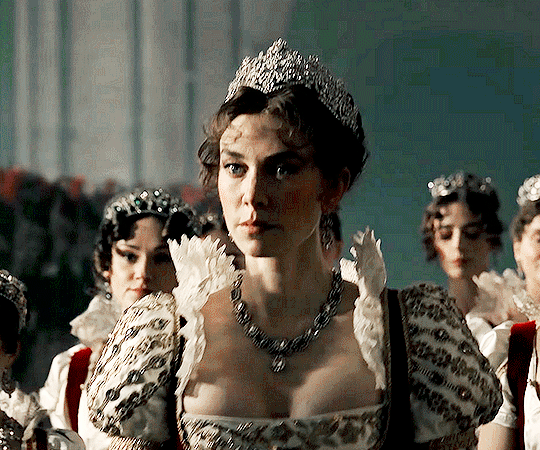

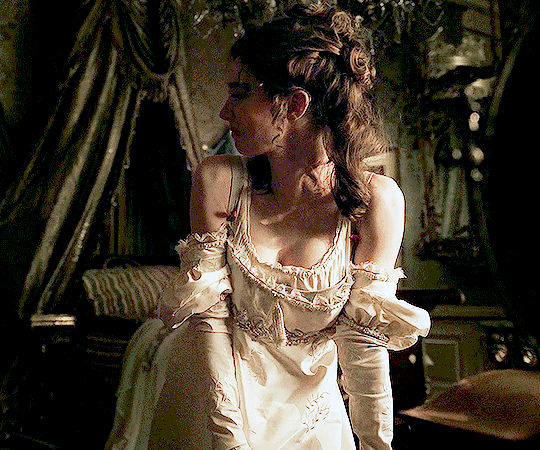

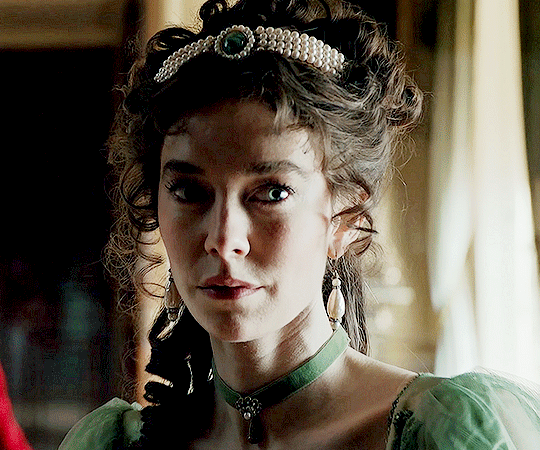
VANESSA KIRBY as EMPRESS JOSEPHINE Napoleon (2023) dir. Ridley Scott
#napoleon#biography#action#2020s#*#by courtney#filmgifs#moviegifs#filmtv#tvandfilm#tvfilmsource#filmtvdaily#dailytvfilmgifs#cinemapix#cinematv#ladiesofcinema#femaledaily#chewieblog#userbbelcher#userstream
277 notes
·
View notes
Text


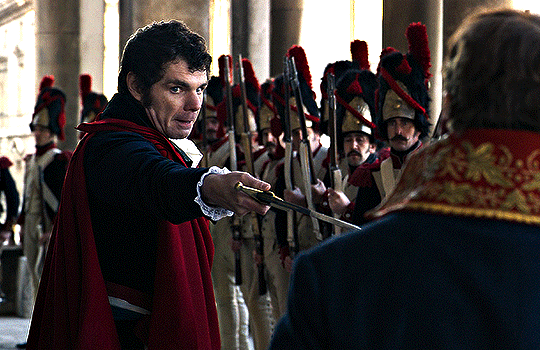

Napoleon (2023) dir. Ridley Scott
#filmedit#perioddramaedit#periodedit#napoleonedit#napoleon#napoleon 2023#gif#liz#2020s#action#adventure#biography
125 notes
·
View notes
Text
A look at three Fouché biographies
Over the past few months I've read three English-language biographies on Fouché: Joseph Fouché: Portrait of a Politician, by Stefan Zweig; Fouché: Unprincipled Patriot, by Hubert Cole; and Medusa's Head: The Rise and Survival of Joseph Fouché, Inventor of the Modern Police State, by Rand Mirante. These are a great example of how dramatically interpretations of a historical figure can vary from one historian to another (see also the difference between Alan Schom's interpretation of Napoleon vs. that of Andrew Roberts). And also a great example of why it’s a good idea to read multiple biographies on the same figure, to gain a more well-rounded perspective, instead of simply accepting/adopting that of the first biographer you read.
Zweig is a colorful writer and his biography is highly entertaining—he actually had me laughing out loud a few times—but his depictions of Fouché are so hilariously sinister and malignant throughout that at times it almost feels like a caricature. Zweig also utilizes the least amount of primary source material out of the three biographers--hardly any, actually--and so much of what he writes in regard to Fouché's motivations and thoughts come across as pure speculation or projection, but are always stated very matter-of-factly. Zweig presents a Fouché who chafes at the smallness of the roles he is given, driven by "unflinching selfishness." "When in power," Zweig writes, "he does not work for the State, does not work for the Directory or for Napoleon, but for himself." Aside from raw ambition, Zweig attributes most of Fouché’s actions to his sheer delight in engaging in intrigue for the sake of intrigue, an interpretation that seems to come straight out of Napoleon’s venting on St. Helena: “Intrigue was to Fouché a necessary of life. He intrigued at all times, in all places, in all ways, and with all persons. Nothing ever came to light, but he was found to have had a hand in it. He made it his sole business to look out for something that he might be meddling with. His mania was to wish to be concerned with everything.” Overall, Zweig’s book is worth reading, but out of the three English-language Fouché biographies, it’d be ranked third on my list.
Hubert Cole’s interpretation of Fouché is as different from Zweig’s as night is from day. The key word in Cole’s title is “Patriot,” and Cole’s central point is that Fouché, at each point in his career, was doing what he believed was in the best interests of France, even if that meant negotiating for peace with Britain behind Napoleon’s back, or pushing Napoleon towards a divorce and remarriage for the sake of shoring up the Bonaparte dynasty, or even (repeatedly) abandoning one master to serve another. This is the second one of Cole’s biographies I’ve read, and as most of you following me already know, I loved his dual biography on Joachim and Caroline Murat, the deceptively named The Betrayers, which is actually a very sympathetic look at the Murat couple. Cole is no fan of Napoleon and doesn’t really attempt to hide it, and maybe it’s because of this that he feels inclined to look deeper at the motivations and actions of those who ended up in opposition to Napoleon at various points (and who have therefore been demonized in history books accordingly). Cole draws heavily on primary sources, from letters and memoirs of Fouché’s contemporaries, to Fouché’s police bulletins (quoted at length throughout) to argue that “It is possible… that he was a sincere and moderately successful patriot. It is not uncommon in France for egoists to be hailed as patriots, and patriots condemned as traitors.” Far from the sinister, cold-blooded figure that haunts Zweig’s biography, or the “universally distrusted, feared, and hated” social pariah of Mirante’s, Cole's Fouché is charming, a welcome figure in the drawing rooms of Paris society, with a preference for making friends rather than enemies; nevertheless Cole does not deny that Fouché could also be ruthless, ambitious, and cunning. Cole also uses numerous accounts regarding Fouché by British, German, and Russian contemporaries, “in the belief that their prejudices, if national, are less personal.” Out of these three biographies, this one was my personal favorite, as I think it provides a more well-rounded picture of Fouché as a human being.
The primary focus of Mirante’s book is Fouché’s administration of the Ministry of Police, and the biography goes into great detail about the operations of the police in Napoleonic France, its vast network of informants, subversion of the press, surveillance of emigrés, and steady stream of information flowing in from all quarters. Fouché emphasized to his subordinates how one small detail or event could be “of great interest in the general order of things by its connections with related matters of which you are scarcely aware.” Like Cole, Mirante quotes frequently from Fouché’s police bulletins, as well as from memoirs of the era (though most of the excerpts are those hostile to Fouché). Unlike Cole, Mirante’s Fouché is driven not by any higher patriotism, but—especially after his humiliating flight from France in 1810—by a deep and abiding hatred of Napoleon, towards whose final destruction Fouché is willing to go to any length. Mirante provides more detail on Fouché’s exile and final years than either Zweig or Cole, one interesting aspect of which is the warm welcome Fouché received in Trieste from Elisa Bonaparte, who had been driven from power in Tuscany largely through Fouché’s machinations with Murat in 1814. Mirante ends the book with a critical look at Fouché’s dubious, ghostwritten “memoirs,” the credibility of which he is far more suspicious than Cole, who accepts the argument of French historian Louis Madelin that they are “largely authentic and accurate.” Mirante, on the other hand, is not convinced, and concludes that the memoirs are “highly assailable, at least quasi-spurious, and shrouded in controversy and deceit.” Mirante ends by drawing parallels between Fouché’s policing methods and those of the Gestapo and NKVD in the 20th century.
Overall I enjoyed all three of these for different reasons, and taken together they offer a more complete picture of Fouché. I haven’t gotten around to reading any French-language biographies on Fouché yet, but I do have a couple works on him by Emmanuel de Waresquiel that are definitely on my to-read list.
#Joseph Fouché#Napoleon#Napoleon Bonaparte#Napoleonic#history#19th century#books#biographies#French Revolution
68 notes
·
View notes
Text
“I cannot accustom myself to the idea that I will never see him again. I am in despair. Adieu. For me life has no more charm, all is finished. I embrace you.”
— Pauline Bonaparte on the death of her brother, Napoleon. In a letter to Hortense de Beauharnais.
Source: Venus of Empire: The Life of Pauline Bonaparte, by Flora Fraser
#Flora Fraser#Fraser#pauline bonaparte#Pauline#Napoleon’s sisters#Venus of Empire: The Life of Pauline Bo#Venus of empire#Pauline biography#Pauline Bonaparte biography#napoleon#napoleonic era#napoleonic#first french empire#french empire#napoleon bonaparte#france#french history#letter#letters#quotes#the death of Napoleon
56 notes
·
View notes
Text
Not to start discourse but I really love how when I was a teenager I read about Robespierre and I thought that was interesting so then I read about Danton and Camille Desmoulins and Marie Antoinette and Louis XVI and Louis XVII and Louis XVIII and then I wanted more so I taught myself French and about the Marquis de Sade and Napoleon and and and
And also all these books about the culture and the history and the art and the individual people who we don’t have enough data for a biography but who still mattered and felt so strongly and did so much
Idk. It’s just fun, to me, to reach a point where any time I see a historical figure in the 18-19th century I can be like “I know that guy!!”
#napoleon#Robespierre#Marquis de Sade#Marie Antoinette#for the record? I am the farthest thing from an expert#so not @ me#I’m just saying it really is fun to like. read biographies on Sade and then you read a bio on napoleon and you see why Sade was locked up#and also you read a bio of Robespierre and he warns about the likes of Napoleon and napoleon rolls in like he’s fulfilling a prophecy#it’s neat. okay! it’s neat! my whole point is it’s neat!!!
19 notes
·
View notes
Note
I haven’t read any biographies of Soult. If I were to read one, would you recommend that Nicole Gotteri's book on him be the one to read?
Absolutely. Especially as I am unaware of any other similar in-depth study on Soult's life.
If possible, get this one:
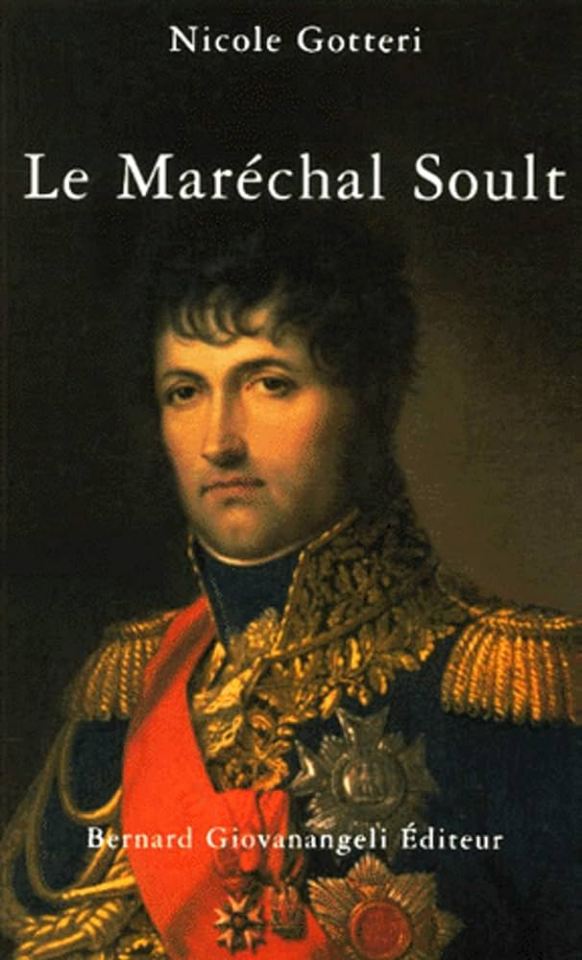
N. Gotteri, "Le Maréchal Soult", éditions B. Giovanangeli, Paris, 2000
I've only borrowed that one from a library and found it had some additions (in particular more images) compared to the older book I own ("Le Maréchal Soult, maréchal d'empire et homme d'état", éditions La Manufacture, Besançon, 1991)
Nicole Gotteri is or was (she may be retired by now) an archiviste, working in the Archives Nationales, in charge of the napoleonic era documents. And she really dug into those 😋. So, unlike in many popular history books, you will usually find she cites her sources very thoroughly, i.e., if you want to fact-check her or just read up some stuff yourself, it's very easy. She even unearthed some letters to and from Soult that had been missing.
Like many (most?) biographers, she is quite in love with her subject though. I've noticed that there are a couple of instances when she follows Soult's own memoirs without giving a secondary source. And in order to exonerate Soult, she often is very harsh on both Berthier and Ney (not even talking about Joseph 😁). Just to give you a fair warning.
17 notes
·
View notes
Text
God I so much prefer researching Habsburg history over reading about literally any of the other figures I'm interested in bcs it gives me genuine stress parsing through the giant amount of biographies, that have such a huge range of biases and narratives, and trying to decide which to actually embark upon. It's not like Habsburg scholarship is a small field or anything, but it's so much more limited than it is for someone like, say, Napoleon. For Habsburg stuff, I'll pretty much read anything bcs I'm so desperate to learn anything, and I usually have to go out of my way to even find books and papers
#everything carries the author's inherent bias obviously#but most habsburg books cover like. 500 years of history. so.#i loved the one random book i found which is just chock full of anecdotes#who the fuck knows if most of it happened but im taking it as the truth 🙏#meanwhile for napoleon im literally sweating reading thru people's reviews#trying to choose which giant ass book to embark upon#meanwhile the other day i came across a random habsburg book and bought it instantly#zero thought put into whether i might not like how the author portrays them or not#ill take whatever i can get 🙏🙏🙏#also i feel very trusting of many of the individual scholars#bcs they had to go out of their way to research a pretty under-researched historical figure#so i trust that they genuinely put a lot of care into it bcs its such an underdeveloped field comparatively#for other figures biographies are practically a dime a dozen#its not like charles vi where ill read any paper i come across bcs it feels like a rare treat#i genuinely have to put way too much thought into it 😭😭 its scary to me#catie.rambling.txt
4 notes
·
View notes
Text
Exhibit A:
This whole page is just *gestures vaguely in frustration* but this part especially. I'm not saying that the author agrees with this, but why include it? It's beyond ridiculous. I had to ask my husband if he's a repressed homosexual because he too likes butts lmao 🤣 (He said he's not)

#napoleon#napoleon bonaparte#napoleon a biography#frank mclynn#dudes who like butts are secretly gay#apparently#why im struggling to read this...
12 notes
·
View notes
Text
i’m still losing it over that nextshark article about the trend of chinese people making “white people food” for work lunches and calling them “the lunch of suffering.” white people secret i was notorious among my friend group in high school for opening up my lunchbox and inside there was a single loose unseasoned hardboiled egg
#i packed my own lunches don’t worry#i prefer a series of snacks across the afternoon to one big meal so the egg was the first of many#but i did just gulp that thing down like a snake no salt no pepper no nothing and go back to reading a biography of napoleon or whatever#ryddles
39 notes
·
View notes
Text

so, like, daddy issues?
#the '' for solved was NEEDED#solved absolutely nothing. what are you doing with a father figure that hates your ass#napoleon: a biography by frank mclynn#what do you mean “especially as a corsican” !!#napoleon bonaparte#pasquale paoli#napoleonposting#certifiedhistoryaddict
20 notes
·
View notes
Text
Mortier and Oats
Throughout 1797-1798, Mortier would be a Brigade Leader under General d’Hautpoul, who was Division General of the 23rd Cavalry. At this point, the 23rd Cavalry is headquartered at Guelders. They must prepare horses to cross the Rhine, but they struggle to get help from civil authorities in Guelders. Here, Mortier writes to the president of the administration of Guelders the day before departing:
"I am waiting in vain since this morning, citizen, may it please you to deliver to the horses of the company which is here, the oats which are due to it. They can do without it all the less since, setting out tomorrow for the crossing of the Rhine, it is essential that they have their full rations. I therefore make you responsible, citizen, for the lack of this service and declare to you that if within one hour, the oats which are due to it are not delivered, you will force me to use the rigorous means that l am authorized to take to obtain it. It is a fact that horses cannot do without eating. Hello and brotherhood. Ed MORTIER.”
Idk, this just seems like a rare angry Mortier moment. And it’s apparently about oats.
Frignet-Despréaux (colonel). Le Maréchal Mortier: Duc de Trévise. Par son petit-neveu Frignet Despréaux, Vol. III, Berger-Levrault, 1914. p. 21.
Source
#napoleonic wars#napoleonic era#napoleon’s marshals#edouard mortier#Mortier biography#Frignet Despréaux Vol 3
28 notes
·
View notes
Text
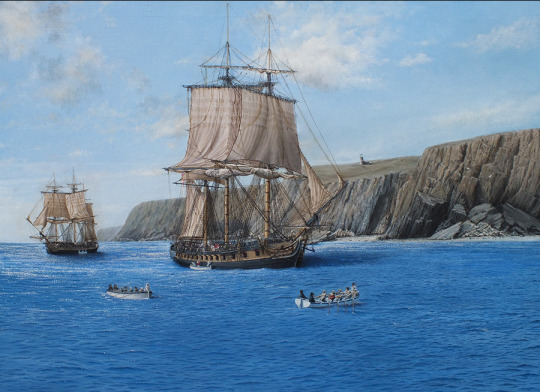
Cochrane's Coastal Raids by Terence Lee.
During the three years that Marryat served on board the Impérieuse he was witness to more than fifty engagements, in which he took as active and prominent a part as a lad of his age could be expected to do; and in the winter that followed his joining it, Lord Cochrane captured and destroyed three French national vessels and twelve merchant ships; he also demolished Fort Roquette, at the entrance of Arcasson.
— Florence Marryat, The Life and Letters of Captain Frederick Marryat
#frederick marryat#captain marryat#age of sail#lord thomas cochrane#thomas cochrane#napoleonic wars#royal navy#naval history#hms imperieuse#naval art#age of fighting sail#biography#life and letters#midshipman marryat
17 notes
·
View notes